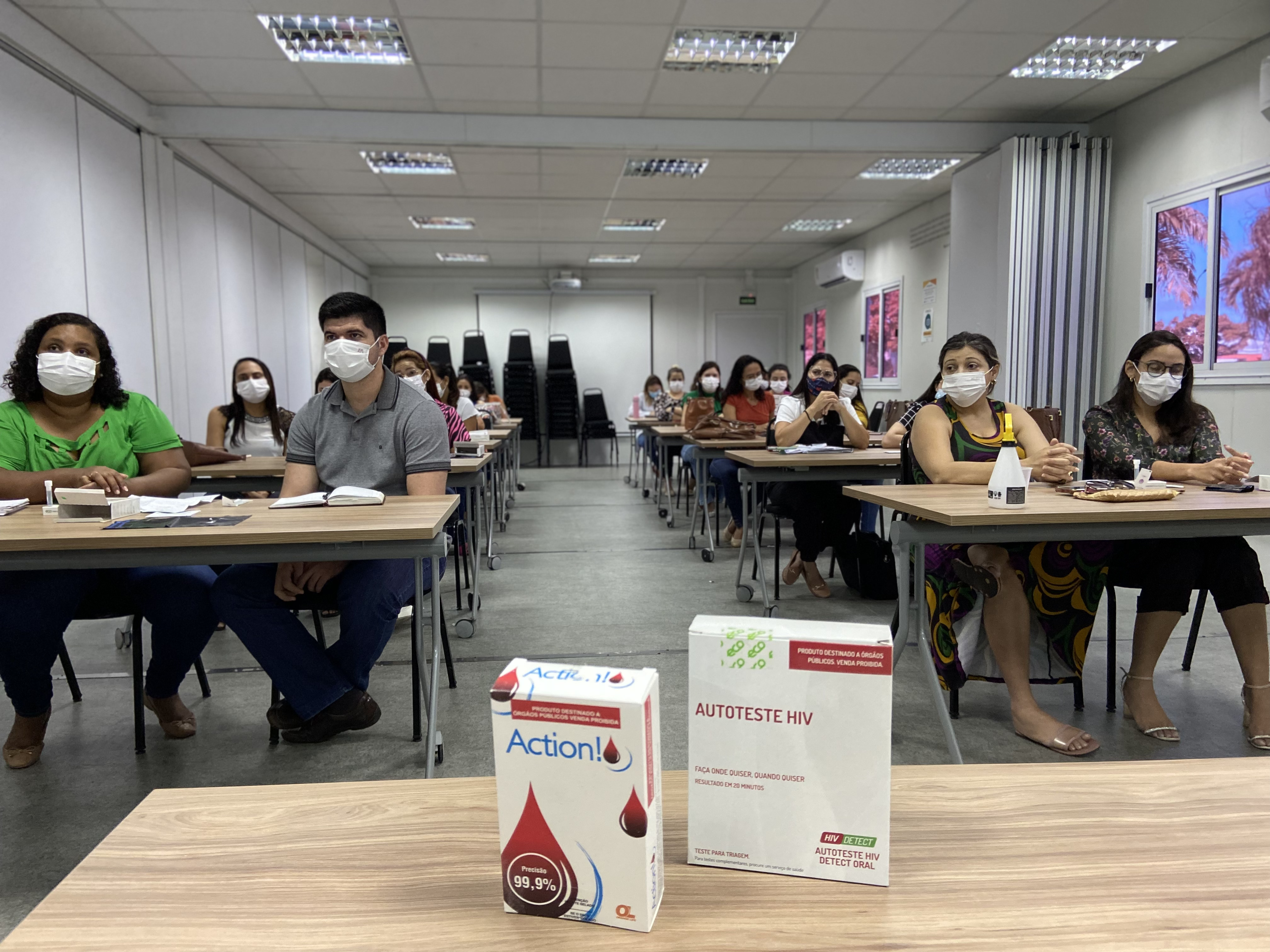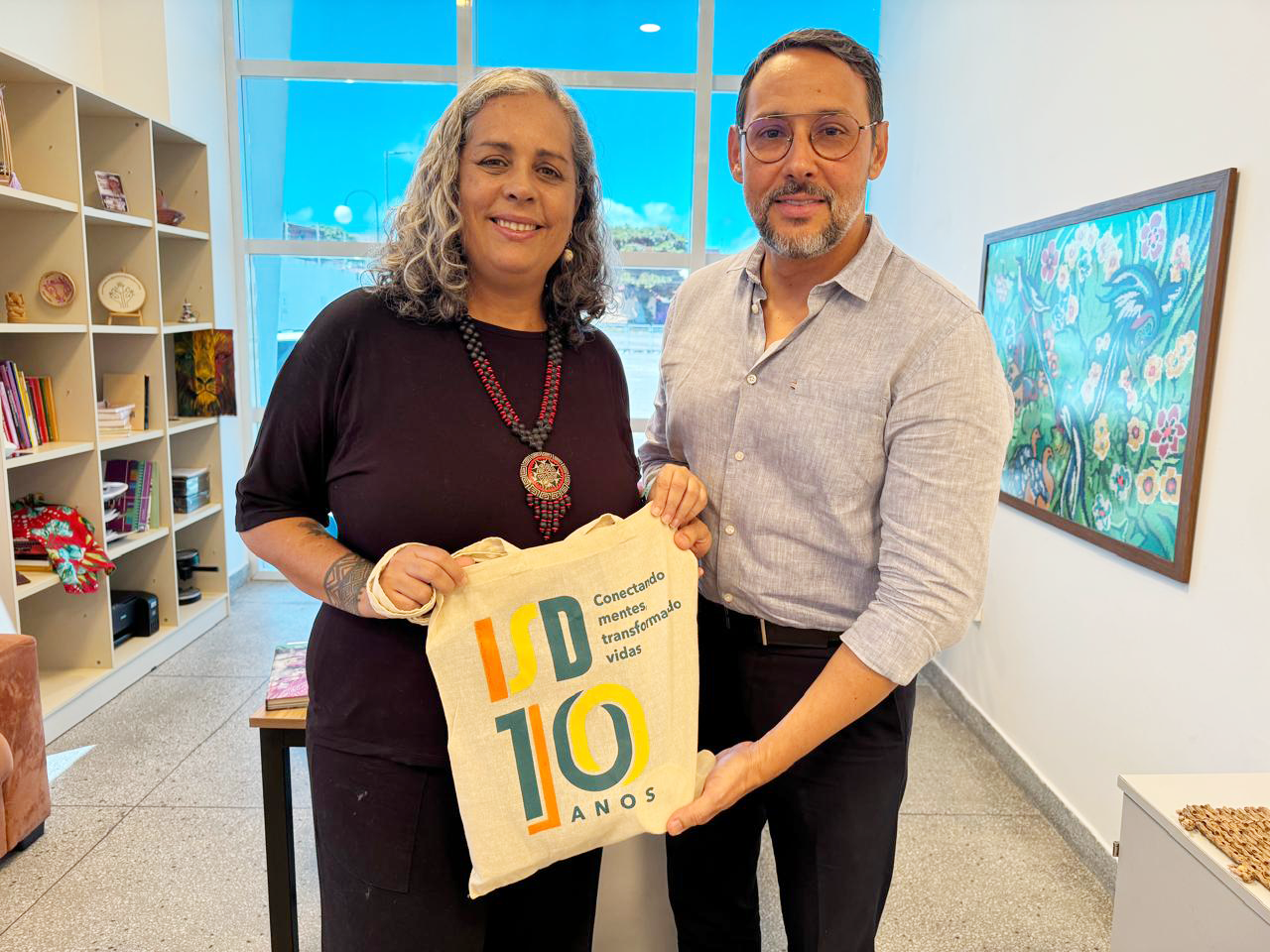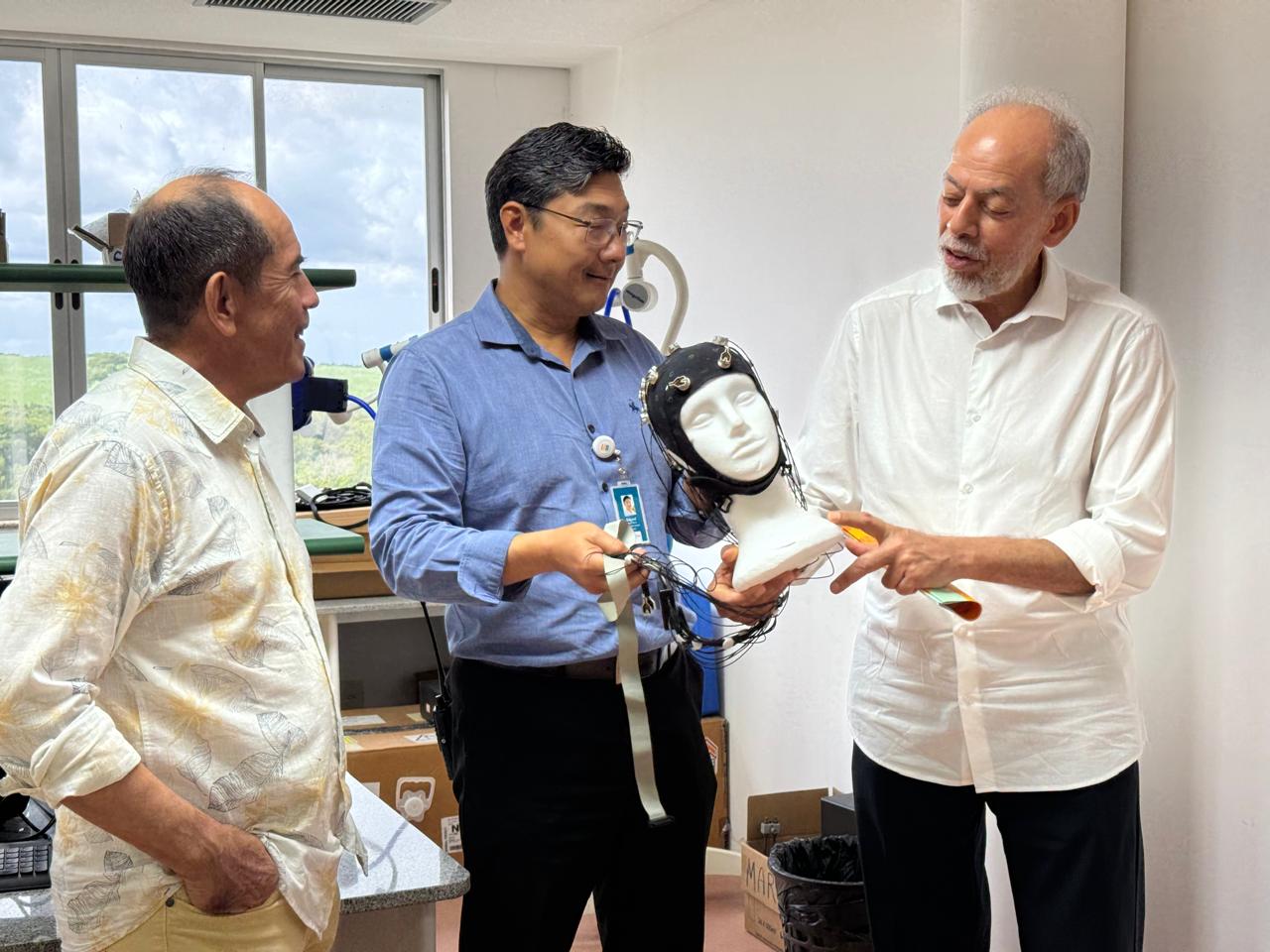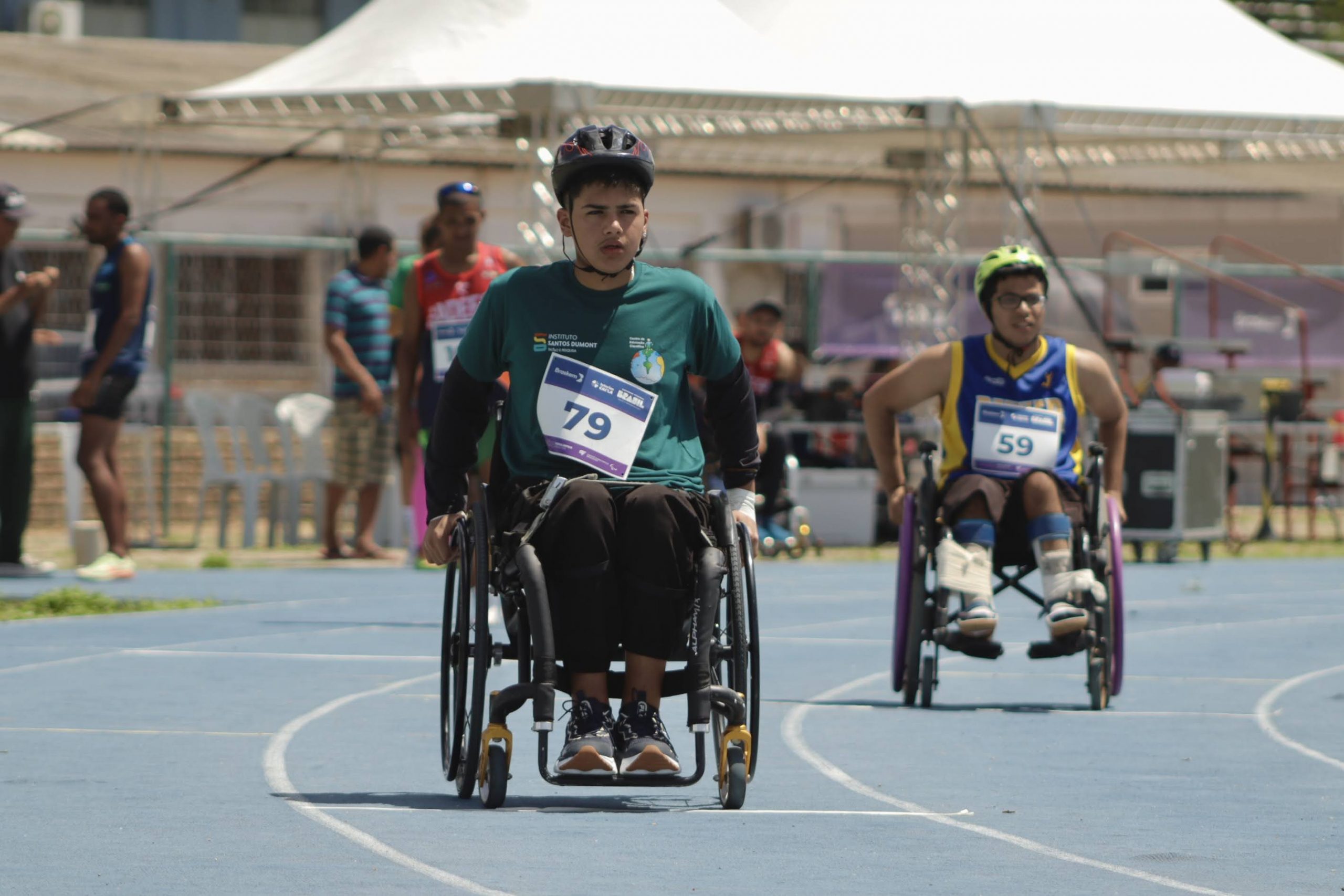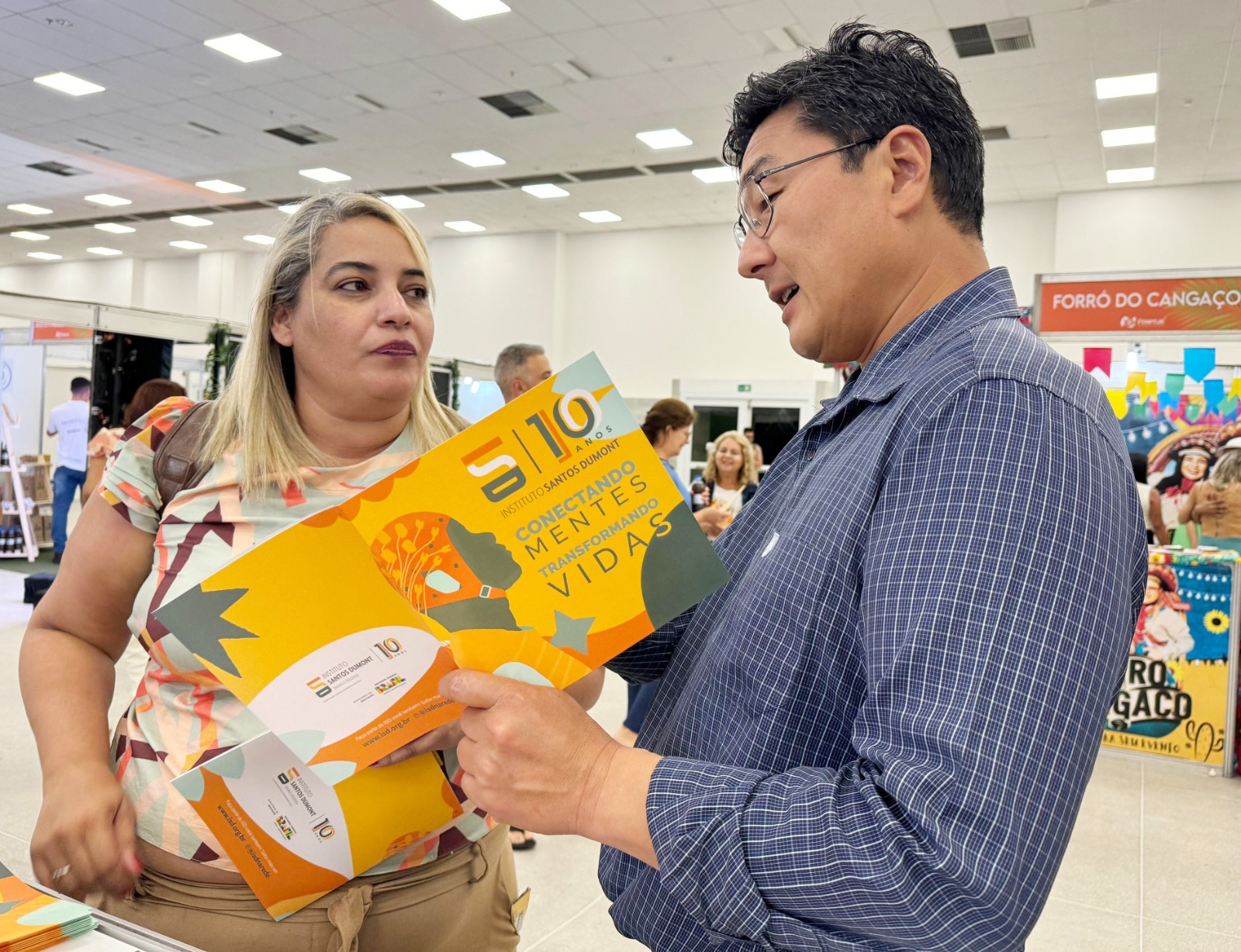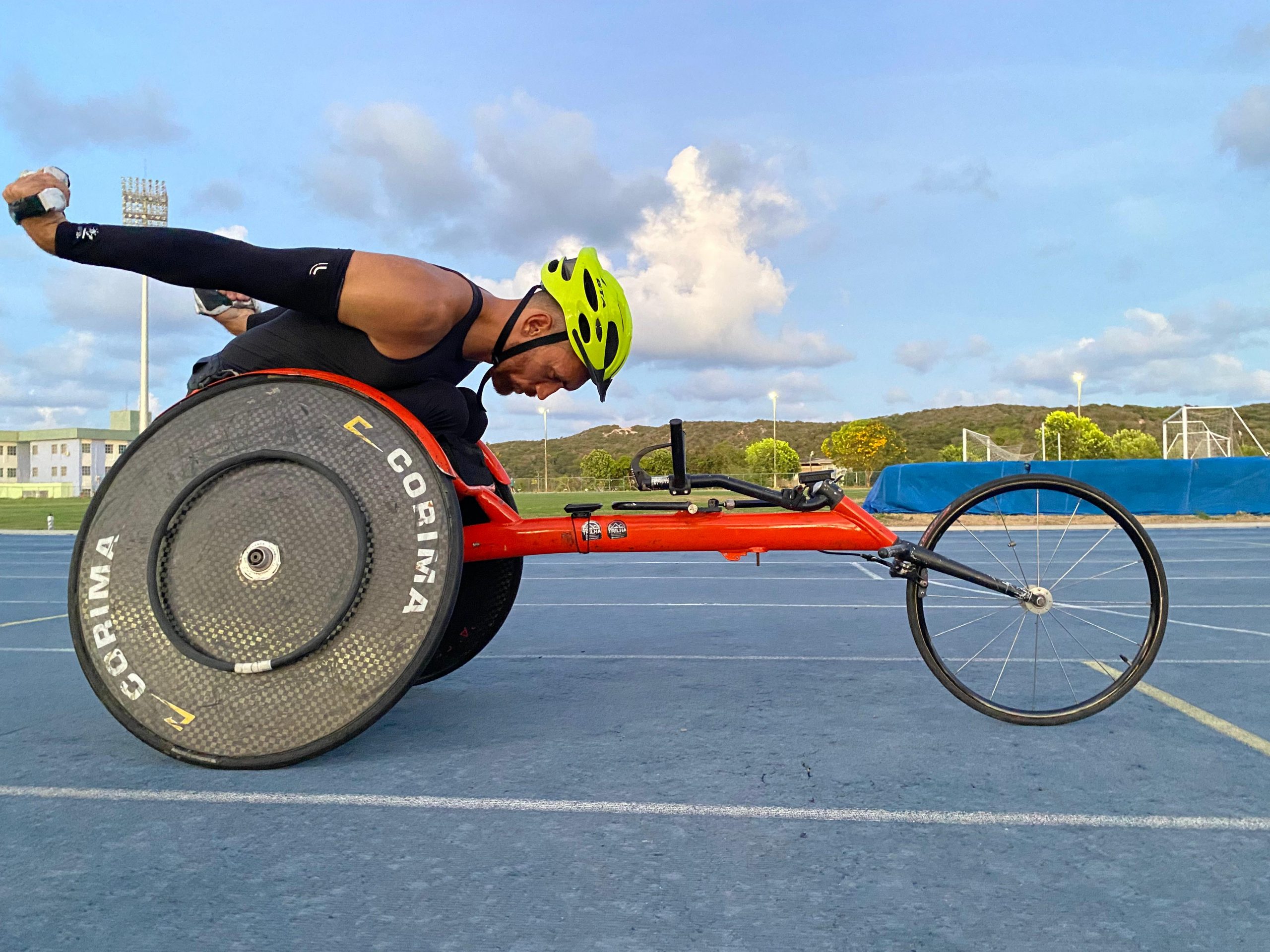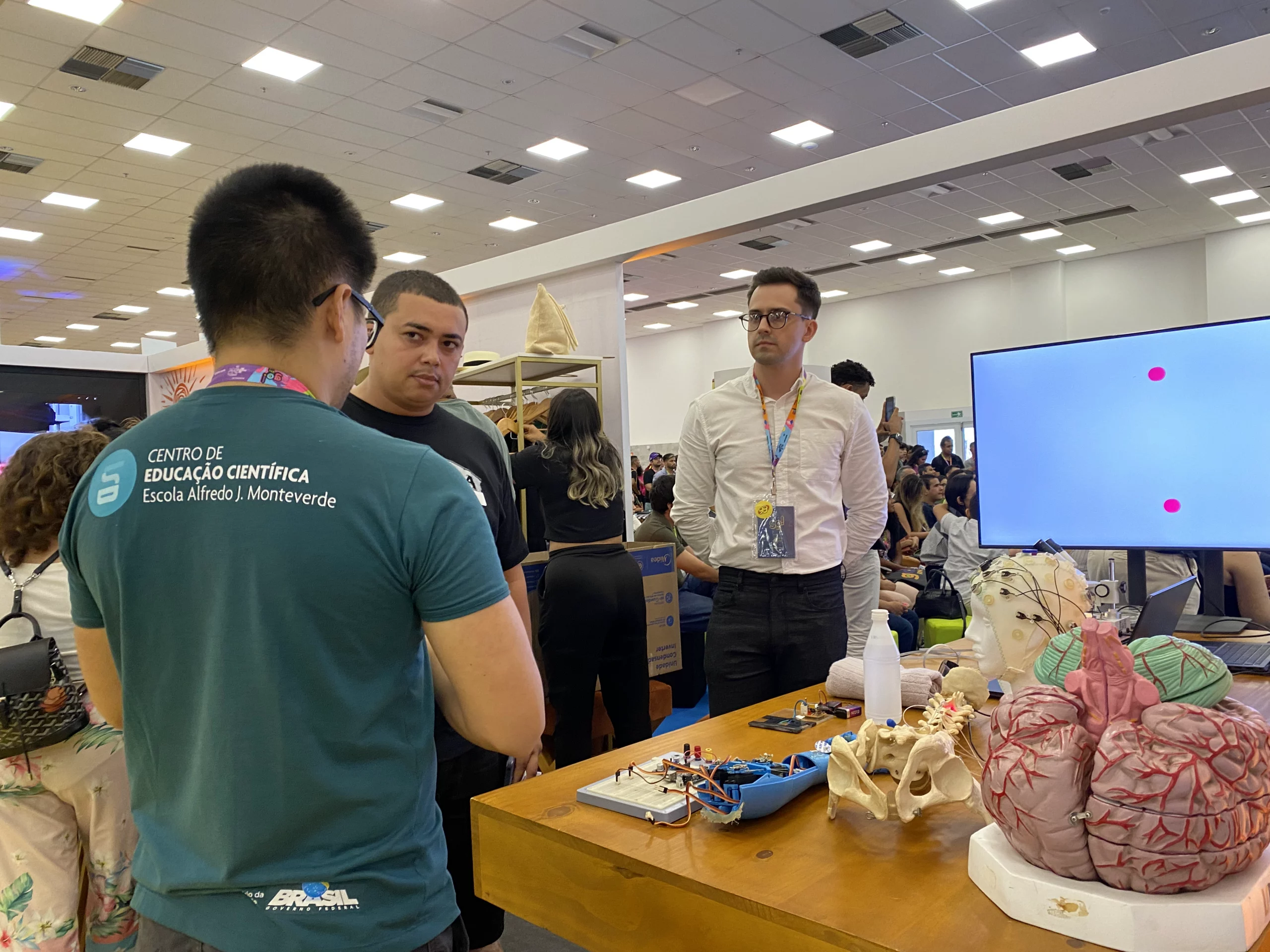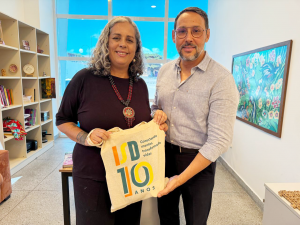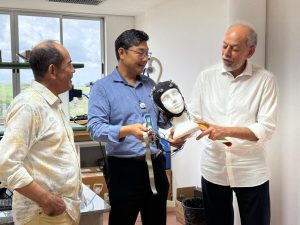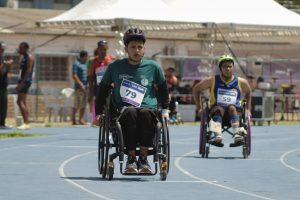Professionals linked to the Macaíba Municipal Health Secretariat participated this Thursday morning, June 23, in the first module of the permanent education cycle to offer self-tests for detecting the HIV virus in key and priority populations in the municipality. The action is promoted by the Santos Dumont Institute (ISD) in partnership with the Municipal Health Department and will be divided into three modules to be carried out between 2022 and 2023. The objective of the self-test, which will be offered in Basic Health Units (UBS), is early detection of HIV infection and referral to treatment.
In this first phase, the multiprofessional team from the Santos Dumont Institute responsible for the action, made up of preceptors, social worker Alexandra Lima, nurse Monise Pontes, biochemistry pharmacist Danielle Alecrim, and psychologist Dolores Medeiros, began the process of discussing the service with awareness of the participating municipal teams. The project is aimed at professionals in medicine, nursing, social work, psychology, pharmacy and managers of Primary Care, Multiprofessional Team (NASF), Adult SAE and Maternal-Child SAE, CAPS AD, CAPS II.
“The Santos Dumont Institute is a technical reference in the Municipality for training health professionals in specific topics, such as those related to Sexually Transmitted Infections (STIs). In this way, the construction of the municipal flow for the distribution of the self-test is one of the strategies to qualify the follow-up of people with HIV identified by this action”, highlights the preceptor social worker of the ISD, Alexandra Lima. The action aims to improve the Line of Care for health care and prevention of injuries caused by the situation of social vulnerability that users of the Unified Health System (SUS) are subject to.
According to the Term of Reference signed between the Santos Dumont Institute and the Municipal Health Department of Macaíba, professionals who form the Primary and Specialized Health Care teams are included in this permanent education action. The HIV self-test should be offered by these establishments to key populations such as people deprived of liberty, sex workers, gay men and men who have sex with men, transgender people and people who use alcohol and other drugs; in addition to priority ones, such as the black population, young people, indigenous people and homeless people.
Late diagnosis is still a challenge in combating the HIV/AIDS epidemic, as it allows the continuity of the virus transmission chain and hinders the individual's immune recovery.
self test
Self-testing is a process in which a person takes their own sample (oral fluid or blood) and then performs a test and interprets the result, either alone or with someone they trust. All individuals with a reactive self-test result should have additional testing performed by a trained professional using a fully validated diagnostic test algorithm.
The advantages of self-testing are: promoting increased access to diagnosis; present one more testing option for those who do not want to take the test in front of other people, or for those who cannot or do not want to be tested in health services (the self-test can be done at home, for example); to promote autonomy in health decisions, allowing the individual to decide where, when and how he wants to be tested. According to the World Health Organization (WHO), evidence shows that self-testing for HIV has high acceptability among various groups of users and in different settings; it has twice the acceptance of the HIV test among men who have sex with men (MSM) and partnerships of pregnant or puerperal women compared to tests performed in services; it practically doubles the frequency of testing among MSM, compared to tests carried out in services; among others.
Timeline
1st Stage: June 23, 2022
Sensitization of Family Health Strategies, NASF and Specialized Care Services for Adults, Mothers and Children; CAPS AD, and CAPS II; start the process of mapping key and priority populations in the municipality of Macaíba.
2nd Stage: July 07, 2022
Definition of the flow and services that will be the open door for making the input available in the first year of implementation and training to offer the procedure; monitoring and evaluation of the procedure in the defined services.
3rd Stage: September 1, 2022
Based on the monitoring and evaluation carried out in 2022, promote the decentralization of the procedure to the Family Health Teams.
Text: Ricardo Araújo / Ascom – ISD
Photograph: Ricardo Araújo / Ascom – ISD
Communication Office
comunicacao@isd.org.br
(84) 99416-1880
Santos Dumont Institute (ISD)
It is a Social Organization linked to the Ministry of Education (MEC) and includes the Edmond and Lily Safra International Institute of Neurosciences and the Anita Garibaldi Health Education and Research Center, both in Macaíba. ISD's mission is to promote education for life, forming citizens through integrated teaching, research and extension actions, in addition to contributing to a fairer and more humane transformation of Brazilian social reality.

